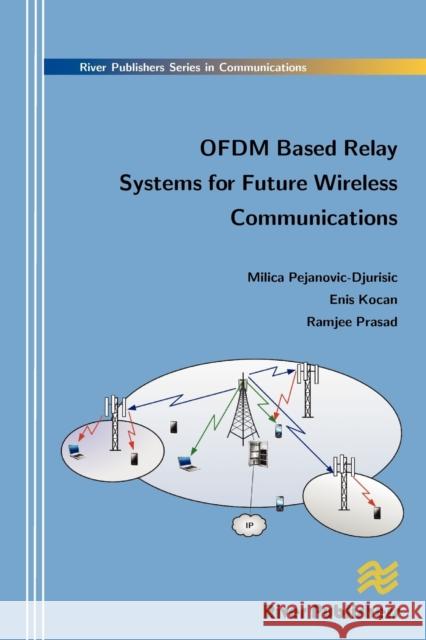Ofdm Based Relay Systems for Future Wireless Communications » książka
Ofdm Based Relay Systems for Future Wireless Communications
ISBN-13: 9788792329271 / Angielski / Twarda / 2012 / 186 str.
Ofdm Based Relay Systems for Future Wireless Communications
ISBN-13: 9788792329271 / Angielski / Twarda / 2012 / 186 str.
(netto: 451,49 VAT: 5%)
Najniższa cena z 30 dni: 468,26
ok. 22 dni roboczych.
Darmowa dostawa!
In recent years, relay systems have become a subject of intensive research interest as it has become evident that they can improve performances and extend the coverage area of wireless communication systems. Special attention has been dedicated to relay systems since the proposal appeared for their implementation in mobile cellular systems. Numerous studies conducted after that proposal have enabled the incorporation of OFDM based relay systems in the accepted standards for IMT-Advanced systems. Nowadays, these ongoing studies aim to define new solutions for performance improvement of the standardized OFDM relay systems for cellular networks, and one of the interesting solutions is the implementation of a subcarrier permutation (SCP) at the relay (R) station.
OFDM Based Relay Systems for Future Wireless Communications presents comprehensive research results in analyzing behavior and performance of the OFDM based relay systems with SCP. Dual-hop relay scenarios with three communication terminals and no direct link between the source (S) and the destination (D) have been analyzed as they are compliant with the accepted solutions for IMT-Advanced systems. This book includes performance analysis and performance comparison of OFDM based:
- amplify-and-forward (AF) relay systems with fixed gain (FG),
- amplify-and-forward (AF) relay systems with variable gain (VG),
- decode-and-forward (DF) relay systems,
each including two SCP schemes known to maximize the system capacity and/or improve the bit error rate (BER) performances. Performance comparisons have enabled definition of optimal solutions for the future wireless communication systems in a given conditions, and for the given optimality criteria.
OFDM Based Relay Systems for Future Wireless Communications is ideal for academic staff and master/research students in area of mobile communication systems as well as for the personnel in communication industry.
Relay systems have become a subject of intensive research interest over the recent years, as it is recognized that they can improve performances and extend the coverage area of wireless communication systems. Special attention has been dedicated to them since the proposal appeared for their implementation in mobile cellular systems. Numerous researches conducted after that proposal have enabled incorporation of OFDM based relay systems in both accepted standards for IMT-Advanced systems. Nowadays, researches are ongoing with the aim to define new solutions for performance improvement of the standardized OFDM relay systems for cellular networks and one of the interesting solutions is implementation of subcarrier permutation (SCP) at the relay (R) station.The book "OFDM based relay systems for future wireless communications" presents a comprehensive research results in analyzing behavior and performance of the OFDM based relay systems with SCP. Dual-hop relay scenario with three communication terminals, and no direct link between the source (S) and the destination (D) has been analyzed, as it is compliant with the accepted solutions for IMT-Advanced systems. The book includes performance analysis and performance comparison of OFDM based:amplify-and-forward (AF) relay systems with fixed gain (FG),amplify-and-forward (AF) relay systems with variable gain (VG),decode-and-forward (DF) relay systems,each including two SCP schemes, known to maximize the system capacity and/or improve the bit error rate (BER) performances. Performance comparisons have enabled definition of optimal solutions for the future wireless communication systems in a given conditions, and for the given optimality criteria. OFDM based relay systems for future wireless communications contains recent research results in this area and is ideal for the academic staff and master/research students in area of mobile communication systems, as well as for the personnel in communication industry. Contents: 1. Introduction; 2. General overview of relay techniques; 3. OFDM relay systems; 4. Relay stations in wireless cellular networks; 5. Performance of OFDM AF FG relay systems with subcarrier permutation; 6. Performance of OFDM AF VG relay systems with subcarrier permutation; 7. Performance of OFDM DF relay systems with subcarrier permutation; List of Abbreviations











